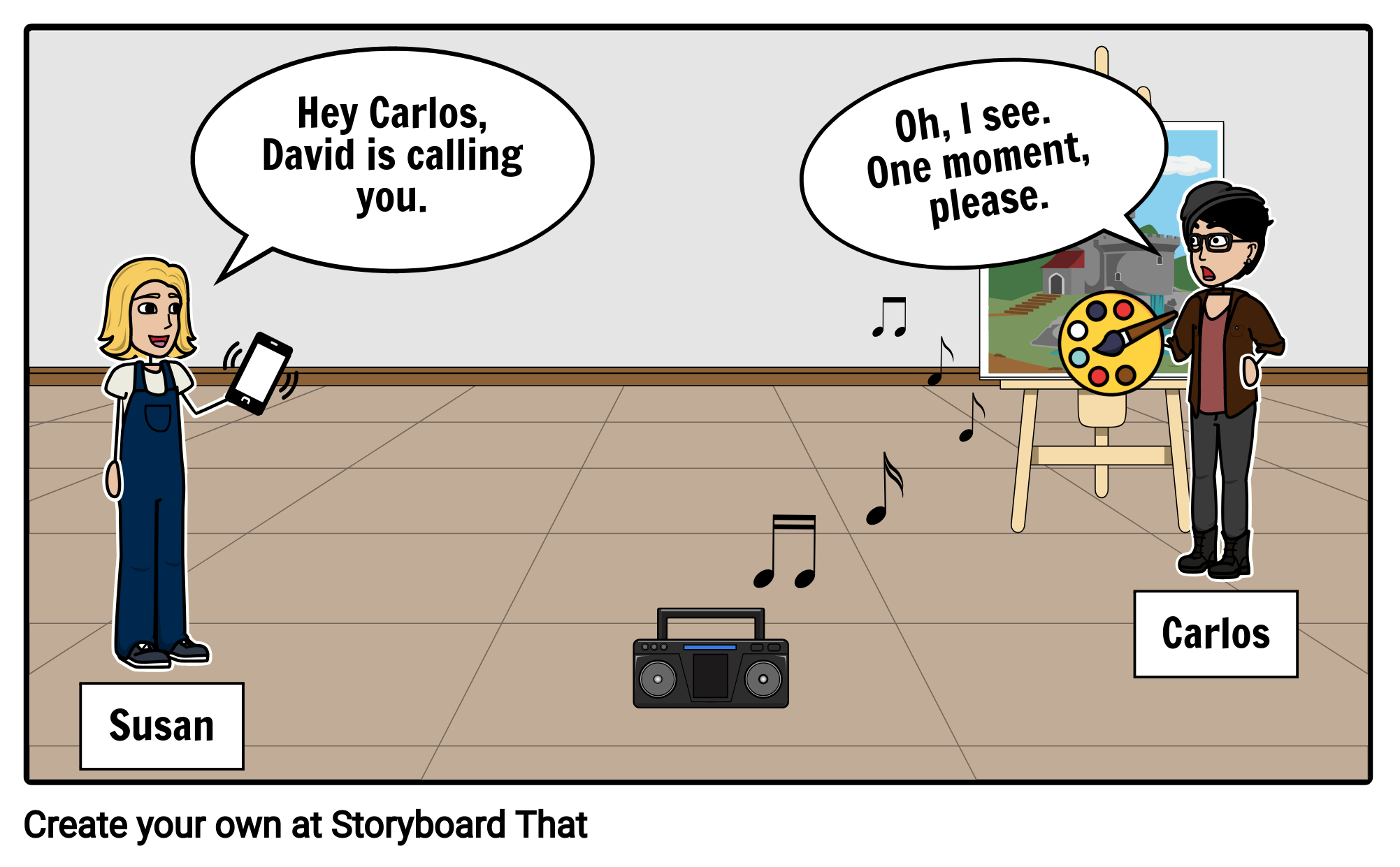LESSON GOAL
In this material, you will practice using the conjunctions “while” and “when” in sentences.
この教材では、接続詞の “while” や “when” を使って文章を作る練習をします。
PART A_1
Let’s read the dialogue. I will play Sam and you will play Alice. Then, we’ll switch roles.
以下の会話文を読みましょう。最初に講師がSam、あなたがAliceの部分を読みます。終わったら交代しましょう。
PART A_2
 Good morning, Alice. You’re early today. Our first class is at 8:30 a.m. Good morning, Alice. You’re early today. Our first class is at 8:30 a.m.
|
I wanted to study for our science quiz, so I came to school early. What do you usually do while waiting for our first class?
|
 I usually read my notes while waiting for our first class. Actually, I was reading my notes in science when you entered the classroom. I usually read my notes while waiting for our first class. Actually, I was reading my notes in science when you entered the classroom.
|
Oh, I see. Then, how about we study together? I will ask you questions and you should answer them without looking at your notes.
|
 That’s a good idea! Sure, let’s do that. That’s a good idea! Sure, let’s do that.
|
Let me just get my science book from my locker. I’ll be back in five minutes.
|
 Okay, I’ll continue reading while waiting for you. Okay, I’ll continue reading while waiting for you.
|
I hope we get good marks on our science quiz later.
|
PART A_3
Please answer the questions I will ask you about the dialogue.
講師が会話文について質問するので答えてみましょう。
PART A_4
| 1. | What time is their first class? |
| Answer: | |
| 2. | Why did Alice come to school early today? |
| Answer: | |
| 3. | What does Sam usually do while waiting for their first class? |
| Answer: | |
| 4. | What was Sam doing when Alice entered the classroom? |
| Answer: |
PART B_1
Study the picture for 1 minute. Please answer the questions below using “when” or “while”.
1分間イラストを見ましょう。”when” or “while” を使って質問に答えてください。
PART B_2

| 1. | What was Carlos doing while listening to music? | |
| Answer: | ||
| 2. | Who called Carlos when he was painting and listening to music? | |
| Answer: | ||
| 3. | Who told Carlos that David was calling him? | |
| Answer: |
PART B_3
Let’s talk. Please answer my questions. You may ask questions, too.
会話練習をしましょう。講師が質問しますので答えてみましょう。また、講師に質問してみましょう。
PART B_4
| 1. | What do you usually do while waiting for your class to start? | |
| Answer: | ||
| 2. | Do you use a dictionary while studying English? | |
| Answer: | ||
| 3. | Do you use a spoon and fork when eating? | |
| Answer: | ||
| 4. | Do you listen to music while studying for an examination? | |
| Answer: | ||
| 5. | Do you bring a shopping list when you go shopping? | |
| Answer: |
REVIEW AND FEEDBACK
Now, let us review the things that you learned in this lesson.
ではこのレッスンで学んだことを振り返りましょう。
(Please give a short feedback on how your student did in your class.)
| Grammar 文法 |
Pronunciation 発音 | Vocabulary 単語 |
Comprehension 理解 |
|
|---|---|---|---|---|
 GOOD GOOD |
文法の誤りはほとんどなく、完全な文章で話すことができる | ほとんどの単語をはっきりと正しく発音することができる | 習った表現を適切に使うことができる | 文章を理解し、質問に正しく答えることができる |
 FAIR |
文法の誤りはあるが、完全な文章で話すことができる | 発音の練習が必要な言葉がいくつかある | たまにミスはあるが、習った表現を適切に使うことができる | 文章を完全に理解するのは難しく、質問に正しく答えられないときもある |
 POOR |
文章で話すのは難しく、単語だけで話すことができる | 発音の練習が必要である | 習った単語と表現を少しだけ使うことができる | 文章を理解するのは難しく、質問に答えるのは難しい |
レッスン教材に関するアンケートのお願い
レッスン教材の改善・拡充を図ることを目的とし、アンケートを実施しております。
以下のURLからアンケートにお答えいただき、 ご意見・ご要望をお聞かせください。
アンケートはこちら